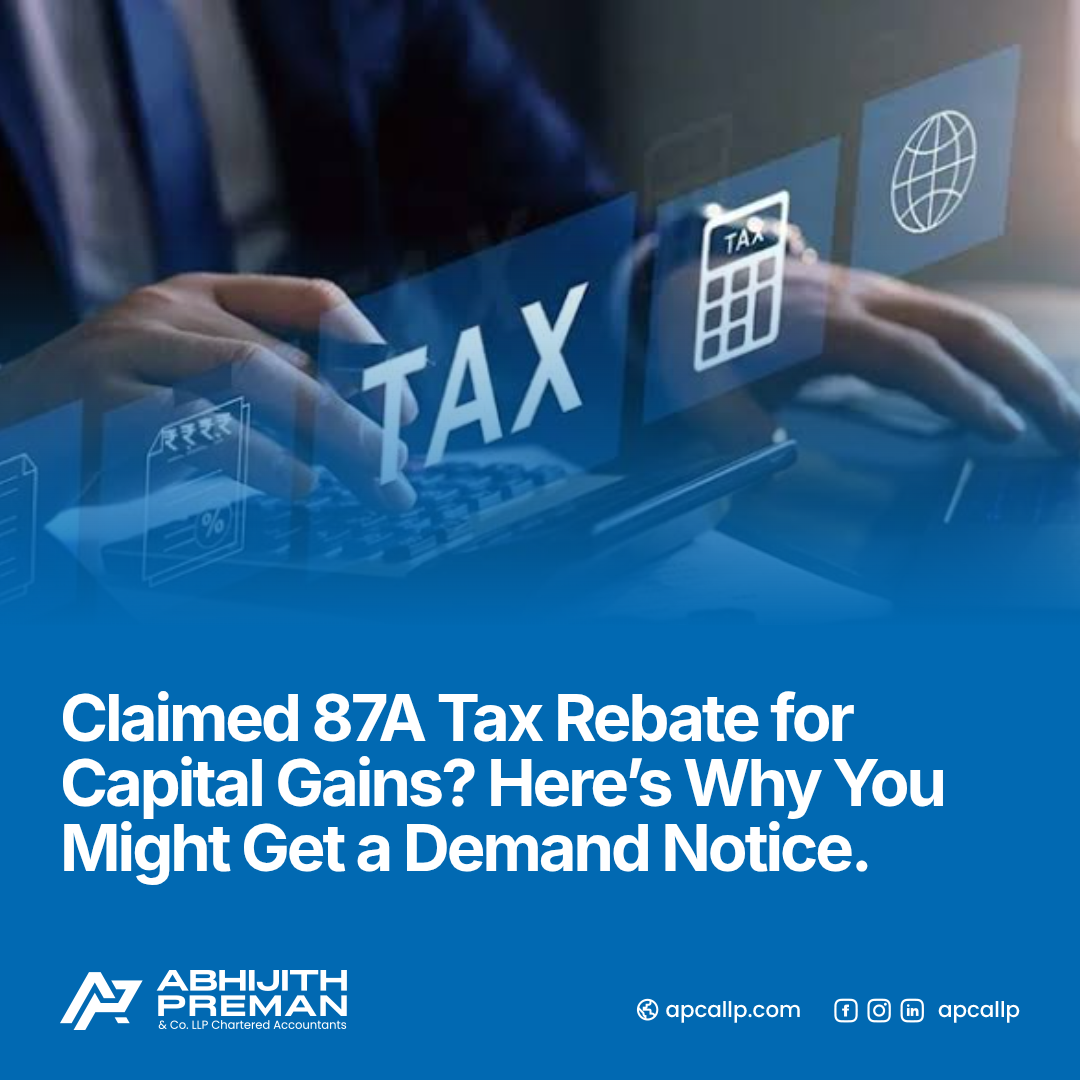
Claimed 87A Tax Rebate for Capital Gains? Why you Might Get a Demand Notice.
Many taxpayers in India have recently been caught off guard by demand notices from the Income Tax Department for incorrectly claiming the 87A rebate on capital gains income. If you’ve received one, don’t panic. Here’s a breakdown of what’s happening, why the notices are being issued, and what you can do to resolve the issue.
Understanding the 87A Tax Rebate
Section 87A of the Income Tax Act allows individuals with a total taxable income of up to ₹5 lakh to claim a tax rebate of up to ₹12,500, effectively reducing their tax liability to zero. However, a common misconception is that this rebate applies to all types of income, including capital gains—which is not entirely true.
Why Are Taxpayers Receiving Demand Notices?
Many taxpayers mistakenly claimed the 87A rebate on capital gains income, particularly from the sale of stocks, real estate, or other investments. Here’s why the IT department is flagging these cases:
1. Capital Gains Are Treated Differently
Long-term capital gains (LTCG) above ₹1 lakh on listed securities are taxed at 10% without indexation under Section 112A.
Short-term capital gains (STCG) on listed securities are taxed at 15% under Section 111A.
Other capital gains (from property, unlisted shares, etc.) are taxed at applicable slab rates.
2. 87A Rebate Does Not Apply to LTCG & STCG Under Special Rates
The rebate is only applicable on income taxed under normal slab rates.
LTCG (taxed at 10%) and STCG (taxed at 15%) do not qualify for the rebate.
3. Mismatch in ITR Processing
When taxpayers incorrectly apply the rebate to taxable capital gains, the IT department detects the discrepancy while processing their Income Tax Return (ITR).
This results in demand notices under Section 143(1), seeking repayment of the underpaid tax.
What Should You Do If You Receive a Notice?
1. Check Your ITR Filing
Review your Form 26AS, AIS (Annual Information Statement), and ITR filing to confirm the income sources and tax calculations.
2. Respond to the Notice
If the rebate was wrongly claimed, you need to pay the due tax amount along with applicable interest.
If you believe the notice is incorrect, you can file a rectification request under Section 154 via the income tax portal.
3. Consult a Tax Professional
If the calculations are complex or involve multiple sources of capital gains, it’s best to consult a chartered accountant or tax expert to avoid further penalties.
How to Avoid This Mistake in the Future?
Understand tax treatment on capital gains before filing your return.
Ensure 87A is only claimed on regular taxable income (salary, business income, rental income, etc.).
Use online tax calculators or professional assistance to verify tax liabilities before submission.
Final Thoughts
Claiming the 87A rebate incorrectly on capital gains can lead to unexpected tax demands, penalties, and interest payments. If you’ve received a notice, act quickly—verify your filing, correct errors, and pay any dues to avoid further complications. Stay informed, file correctly, and consult experts when in doubt!